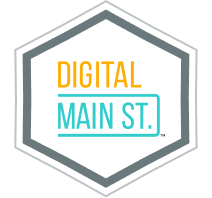Introduction to Custom Software Development
What is Custom Software Development?
Definition of Custom Software Development
Custom software development refers to the creation of software applications tailored specifically to meet the unique needs of a particular business or user. Unlike generic, off-the-shelf software, custom solutions are designed to address specific challenges and requirements, providing a more personalized and efficient tool for users.
Characteristics of Custom Software Development
Custom software is characterized by its flexibility, scalability, and specificity. It is built to cater to the exact specifications and workflows of the user, allowing for greater customization and optimization. This type of software can be modified and updated as business needs evolve, ensuring it remains relevant and effective over time.
Differences from Off-the-Shelf Software
Off-the-shelf software is a ready-made product designed for a broad audience with generalized needs. While it can be cost-effective initially, it often lacks the flexibility and customization options required by businesses with unique requirements. Custom software, on the other hand, is developed from the ground up to meet specific demands, offering a more tailored and long-term solution.
Importance of Custom Software Development
Meeting Unique Business Needs
Every business operates differently, with its own set of processes, goals, and challenges. Custom software development allows businesses to create solutions that align perfectly with their operations, enhancing efficiency and effectiveness. By addressing specific pain points, custom software can streamline processes, reduce redundancies, and improve overall productivity.
Enhancing Efficiency and Productivity
Custom software is designed to integrate seamlessly with existing systems and workflows, minimizing disruptions and maximizing efficiency. By automating routine tasks and providing features tailored to user needs, it helps employees focus on more strategic activities, thereby boosting productivity.
Competitive Advantage
In today’s competitive market, having unique and efficient tools can set a business apart. Custom software provides a competitive edge by offering capabilities that competitors may lack. This can lead to improved customer satisfaction, better decision-making, and ultimately, higher profitability.
Benefits of Custom Software Development
Scalability and Flexibility
One of the significant advantages of custom software is its scalability. As a business grows and its needs change, custom software can be scaled and adapted accordingly. This flexibility ensures that the software remains useful and efficient, regardless of changes in the business environment.
Integration with Existing Systems
Custom software can be designed to integrate smoothly with existing systems, reducing the risk of compatibility issues. This seamless integration helps maintain consistency across various platforms and tools, enhancing overall system functionality and user experience.
Cost-Effectiveness in the Long Run
While the initial investment in custom software development can be higher than purchasing off-the-shelf solutions, it often proves to be more cost-effective in the long run. Custom software reduces the need for multiple licenses, frequent updates, and additional features that may not be required, leading to significant cost savings over time.
Custom Software Development Process
Requirement Analysis
The first step in custom software development is understanding the client’s needs and requirements. This involves thorough discussions, documentation, and analysis to ensure that the final product aligns with business goals and user expectations.
Planning and Design
Once the requirements are clear, the next step is to plan and design the software architecture. This phase includes creating detailed specifications, wireframes, and prototypes to visualize the final product and ensure all stakeholders are on the same page.
Development and Testing
The actual coding and development take place in this phase. Developers use the chosen technologies and frameworks to build the software, followed by rigorous testing to identify and fix any bugs or issues. Testing ensures that the software is reliable, secure, and performs as expected.
Deployment and Maintenance
After successful testing, the software is deployed to the live environment. This phase includes user training, data migration, and initial support. Ongoing maintenance and updates are crucial to address any issues, add new features, and ensure the software continues to meet evolving business needs.
Types of Custom Software
Web Applications
Custom web applications are designed to run on web browsers, offering accessibility and convenience. These applications are ideal for businesses looking to provide online services, manage data, or facilitate communication.
Mobile Applications
Mobile apps are tailored for smartphones and tablets, providing users with on-the-go access to business tools and services. Custom mobile applications can enhance customer engagement and improve operational efficiency.
Desktop Applications
Desktop applications are installed on personal computers and provide robust functionality for users. These applications are often used for tasks that require significant processing power and offline capabilities.
Enterprise Software Solutions
Enterprise software solutions are comprehensive systems designed to support large organizations’ complex needs. These solutions often integrate various functions such as finance, HR, and supply chain management into a single cohesive platform.
Challenges in Custom Software Development
High Initial Costs
Developing custom software can be expensive initially due to the need for specialized skills, extensive planning, and detailed development processes. However, the long-term benefits often justify the upfront investment.
Time-Consuming Development Process
Custom software development can take significantly longer than purchasing off-the-shelf solutions. The detailed analysis, design, development, and testing phases require substantial time and effort, which can delay the software’s deployment.
Need for Ongoing Maintenance
Custom software requires ongoing maintenance to fix bugs, update features, and ensure compatibility with new technologies. This need for continuous support can be resource-intensive and requires a dedicated team.
Key Technologies in Custom Software Development
Programming Languages
Various programming languages are used in custom software development, including Java, Python, C#, and JavaScript. The choice of language depends on the project requirements and the desired functionality.
Development Frameworks
Frameworks such as .NET, Angular, and React provide pre-built components and tools that streamline the development process. These frameworks enhance efficiency and ensure code quality.
Tools and Platforms
Development tools like Git, Docker, and Jenkins facilitate version control, containerization, and continuous integration. These tools help manage the development process and ensure smooth deployment and maintenance.
Selecting a Custom Software Development Partner
Evaluating Expertise and Experience
When choosing a development partner, it’s essential to assess their expertise and experience in similar projects. Reviewing their portfolio, client testimonials, and case studies can provide insights into their capabilities.
Considering Cost and Budget
While cost should not be the sole factor, it is crucial to consider the budget and ensure that the development partner can deliver a high-quality solution within the allocated funds. Transparent pricing models and detailed proposals can help manage costs effectively.
Communication and Collaboration Capabilities
Effective communication and collaboration are vital for the success of a custom software development project. The development partner should have a clear communication strategy, regular updates, and collaborative tools to ensure smooth project management.
Case Studies of Successful Custom Software Projects
Industry-Specific Solutions
Custom software has been successfully implemented in various industries, including healthcare, finance, and retail. These solutions address industry-specific challenges and enhance operational efficiency.
Small Business Solutions
Small businesses benefit from custom software tailored to their unique needs, enabling them to compete with larger enterprises. Solutions such as CRM systems, inventory management, and customer service tools can drive growth and efficiency.
Large Enterprise Solutions
Large enterprises often require complex software solutions that integrate multiple functions and processes. Custom enterprise software can streamline operations, improve decision-making, and provide a competitive edge.
Future Trends in Custom Software Development
Artificial Intelligence and Machine Learning
AI and ML are transforming custom software development by enabling smarter and more efficient solutions. These technologies can automate processes, provide predictive analytics, and enhance user experiences.
Internet of Things (IoT)
IoT is increasingly being integrated into custom software to connect devices and systems. This integration allows for real-time data collection, monitoring, and control, leading to improved efficiency and innovation.
Blockchain Technology
Blockchain offers secure and transparent solutions for custom software development. Its applications range from supply chain management to secure transactions, providing businesses with new opportunities for innovation and security.










